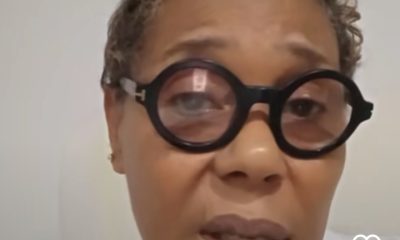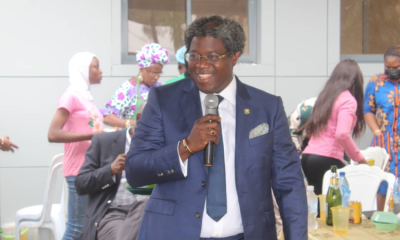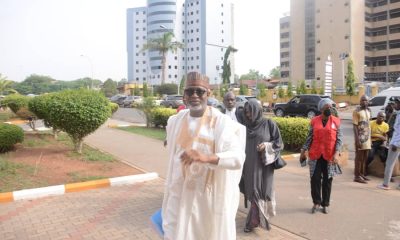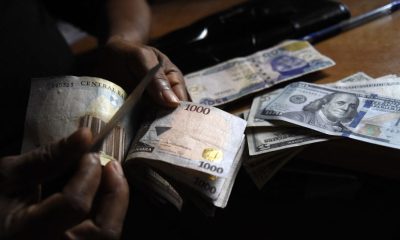Business
DSTV price hike: Five alternatives Nigerians are opting for
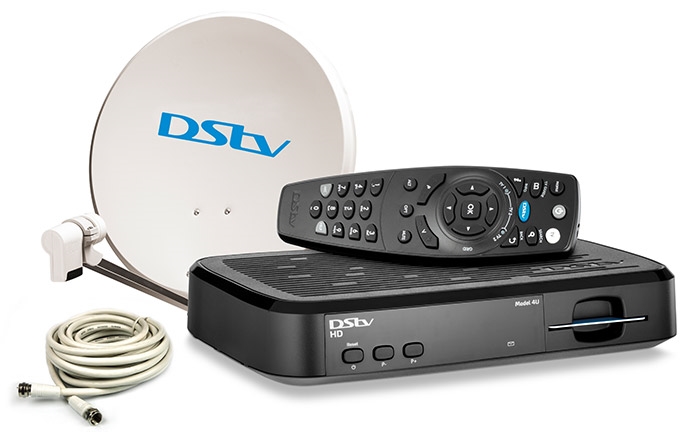
Broadcasting company, Multichoice, on Wednesday, increased the prices of its offerings in Nigeria four months after its last increment.
The company reviewed prices in its packages across the board. The new prices will take effect from May 1, 2024.
With the latest price hike, the DStv Premium package increased from N29,500 to N37,000. Similarly, the DStv Compact+ went up from N19,800 to N25,000 while the Compact package increased from N12,500 to N15,700.
The Comfam package moved from N7,400 to N9,300. Yanga package moved up from 4,200 to N5,100 while Padi package increased from N2,950 to N3,600. HDPVR was increased from N4,000 to N5,000, the Access Fees package from N4,000 to N5,000, and XtraView moved from N4,000 to N5,000.
Meanwhile, the Gotv Supa+ package moved from N12,500 to N15,700, Supa package from N7,600 to N9,600, and Max package from N5,700 to N7,200.
While the Jolli package was increased from N3,950 to N4,850, the Jinja package moved from N2,700 to N3,300, and Smallie package from N1,300 to N1,575.
The upward review of the broadcasting company’s offerings has stirred mixed reactions online, with social media users arguing that the increment was coming at the wrong time.
Reacting to the hike on X, a social media user, Kelvin Odanz, who tweets as @MrOdanz, asked Nigerians to explore other options rather than complain about the increase.
He wrote, “If you can afford stable Internet, there are so many other services you can use aside from DSTV. For football and other entertainment. Because aside football, nothing dey DSTV. Explore these options and stop whining.
“I am not even a fan of DSTV one bit. Aside from football, there’s basically nothing of note there. But this whole outrage over them hiking their price is quite hypocritical. Everyone has hiked the price of their goods/services. Even small businesses. So why shouldn’t DSTV do same?
Sharing his sentiment, @Letter_to_Jack said, “Electricity tariffs increased: Small rage. Cement prices through the roof: Small rage. Diesel to 1700/L at a point: Small rage. Indomie at 13k = small rage. Dstv increases prices: OUTRAGE! At this point, you’d think DSTV/MultiChoice is the only trigger Nigerians have.”
On his part, David Ofor, said while the price increase was understandable, it was important for the broadcasting company to justify it by offering value for the money.
He wrote, “I understand the fact that Multichoice is operating in a free market economy, and Govt has limited control mechanism in such. What people are complaining about is not primarily the price hike, but, the static content being provided, DSTV and GoTV have not improved on their services despite the plethora of increments over the years.
“They should justify the payments made, more so, why are they increasing now that Diesel prices are coming down and Naira is strengthening?”
While the debate continues, we look at other alternatives Nigerians can consider for their pleasure.
DSTV — Despite the mixed reactions that greeted the increase, many Nigerians will continue with the broadcasting company. With several increments, Multichoice still boasts customers’ loyalty among other alternatives offering the same services.
Many households prefer DStv and GOtv as their source of entertainment. This may not be unconnected to the company’s premium in international sports broadcasting, particularly European leagues and UEFA Champions League.
When contacted on Friday, the spokesperson for Multichoice Nigeria, Caroline Oghuma, said despite the hike, subscribers can still enjoy their current price for the next year with a “Price Lock” incentive.
“With Price Lock, you can continue to pay your current subscription for up to a year, if you pay before your due date, each month,” Oghuma told our correspondent.
Star Times — The company, a major player in the Asian country’s Pay-TV market, has a considerable market share in some African countries, including Nigeria and Kenya.
Startimes has channels that include news, music, movies, and football channels, including exclusive rights to some football content.
Business
Naira declines to N1,450/$ at parallel market
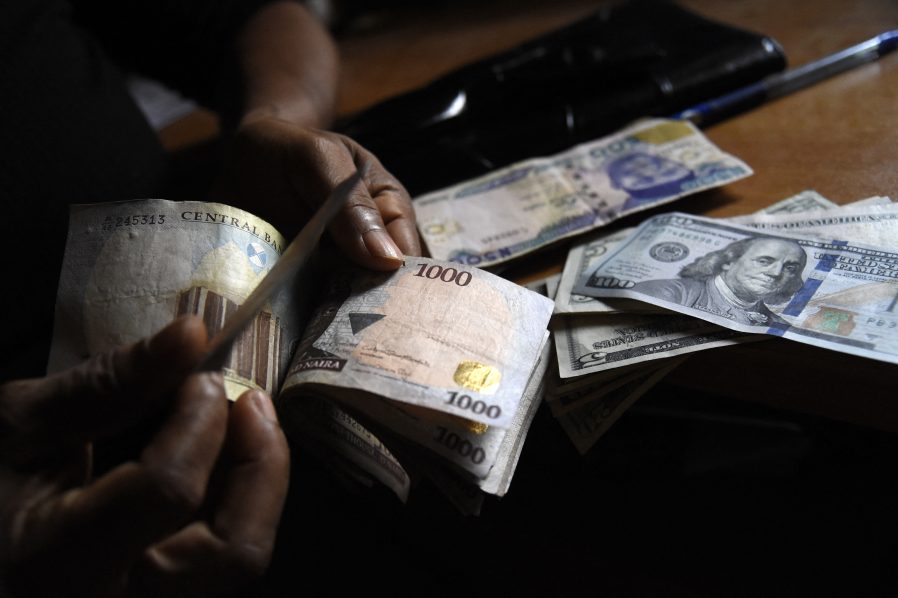
The naira declined to N1,450 at the parallel section of the foreign exchange (FX) market on Wednesday.
The current FX rate represents a 1.4 percent depreciation from the N1,430 traded on May 6.
Currency traders, also known as bureau de change (BDC) operators, put the buying rate of the greenback at N1,410 and the selling price at N1,450 — leaving a profit margin of N40.
At the official window, the local currency depreciated by 1.98 percent to N1,421.06 on May 8 — from N1,416.57 on May 7.
During trading, the dollar recorded a high of N1,440 and a low of N1,335, according to data from FMDQ Exchange, a platform that oversees FX trading in Nigeria.
On May 7, the Central Bank of Nigeria (CBN reviewed its directive on the repatriation of export proceeds by international oil companies (IOCs).
Earlier in February, the regulator had placed limits on the transfer of proceeds from crude exports by IOCs to offshore parent company accounts as part of reforms to curb the volatility in the FX market.
The CBN had said the transfer of funds by the IOCs has an impact on liquidity in the domestic FX market, hence the need for the measures to reverse the trend.
“The initial 50% of the repatriated proceeds can be pooled immediately or as at when required. Banks may submit the request for cash pooling ahead of the expected date of receipt, supported by the required documentations, for approval by the Central Bank of Nigeria,” the CBN said, announcing the policy review.
“The 50% balance of the repatriated export proceeds could be used to settle financial obligations in Nigeria, whenever required, during the prescribed 90-day period.”
The apex bank said the IOCs can also utilise the balance for cash calls, domestic loan principal and interest payments, transaction taxes (including Nigerian Content Development (NCD) levy, education tax, and forex sale at the FX market.
Business
CBN extends suspension of processing fees on large cash deposits to September 2024
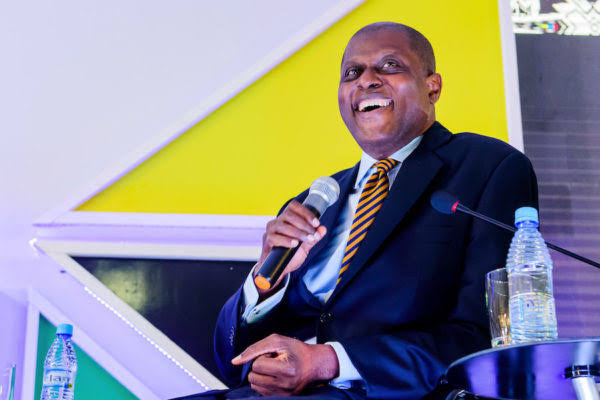
In a notable policy update, the Central Bank of Nigeria (CBN) has extended the suspension of processing fees on significant cash deposits until September 30, 2024.
This decision impacts cash deposits exceeding ₦500,000 for individuals and ₦3,000,000 for corporations, which were initially subject to fees of 2% and 3% respectively.
The extension, outlined in a letter from the CBN’s Acting Director of Banking Supervision, Dr. Adetona S. Adedeji, dated May 6, 2024, follows a previous directive that had temporarily halted these charges.
The initial suspension, as reported by Nairametrics on December 11, 2023, was a relief to depositors handling large sums, aiming to promote financial inclusion and ease the burden on large transactions.
Nairametrics reported that banks were poised to resume processing charges as the initial suspension period neared its end.
However, the CBN’s latest directive extends this relief, ensuring that depositors will not incur additional costs when making substantial cash deposits for an extended period.
The directive read in part
“The Central Bank of Nigeria (CBN) hereby extends the suspension of the processing fees of 2% and 3% previously charged on all cash deposits above these thresholds until September 30, 2024.
Consequently, all financial institutions regulated by the CBN should continue to accept all cash deposits from the public without any charges until September 30, 2024.”
Business
‘7 international, 15 national’ — CBN updates list of licenced banks

The Central Bank of Nigeria (CBN) has updated the list of deposit money banks operating in the country.
This was disclosed in a circular published on May 7 on its website and titled ‘List of Deposit Money Banks and Other Financial Institutions as of 26th April 2024’.
Newsmen observed the number of deposit money banks moved from 34 in 2020 to 44 in the latest list.
Also, the CBN disclosed Union Bank‘s licence was downgraded from international to national.
Globus Bank, Premium Trust Bank, and Optimus Bank upgraded their licence to the national category.
A further breakdown of the latest list of DMBs by the CBN shows seven banks are under the commercial banking category with international licences, 15 banks with commercial banking licences are under the national category, and four are authorised for regional operations.
Also on the list are four non-interest banks with national licences and six banks with merchant banking licences with national authorisation.
CBN disclosed Nigeria has seven financial holdings companies (HoldCo), while the country has one representative office called the Mauritius Commercial Bank Representative Office (Nigeria) Limited.
Full list of banks and their categories
International Lenders
- Zenith Bank
- Guaranty Trust Bank
- First City Monument Bank (FCMB )
- Access Bank
- United Bank of Africa (UBA)
- Fidelity Bank
- First Bank of Nigeria (FBN)
National Licenced
- Citibank Nigeria
- Ecobank Nigeria
- Heritage Bank
- Globus Bank
- Keystone Bank
- Polaris Bank
- Stanbic IBTC Bank
- Standard Chartered Bank
- Sterling Bank
- Titan Trust Bank
- Union Bank
- Unity Bank
- Wema Bank
- Premium Trust Bank
- Optimus Bank
Regional Licenced
- Providus Bank
- Parallax Bank
- Suntrust Bank
- Signature Bank
Non-Interest Lenders
- Jaiz Bank
- Taj Bank
- Lotus Bank
- Alternative Bank
Merchant Licenced
- Coronation Merchant Bank
- FBN Merchant Bank
- FSDH Merchant Bank
- Greenwich Merchant Bank
- Nova Merchant Bank
- Rand Merchant Bank
Financial Holding Companies
- Access Holdings
- FBN Holdings
- Guaranty Trust Holdings
- FCMB Holdings
- FSDH Holdings
- Stanbic IBTC Holdings
- Sterling Financial Holdings
Representative Office
- The Mauritius Commercial Bank Representative Office (Nigeria) Limited.
On March 29, CBN announced an upward review of the minimum capital requirements for commercial, merchant and non-interest banks.
The apex bank said the increase was necessary due to prevailing macroeconomic challenges and headwinds occasioned by external and domestic shocks.
CBN advised banks unable to meet the required capital base to downgrade their licence.
-

 Crime1 week ago
Crime1 week agoUK-based Nigerian doctor, Tijion Esho loses licences over sex for free Botox injections
-

 Entertainment2 days ago
Entertainment2 days agoKanayo introduces first son to filmmaking (Video)
-
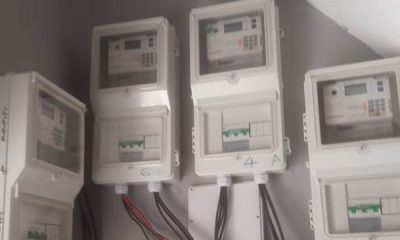
 Business2 days ago
Business2 days agoNERC reduces FX rate for calculating new tariff for Band A customers by 16.03%
-
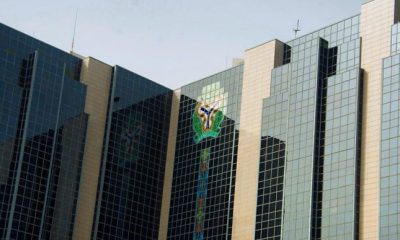
 Business2 days ago
Business2 days agoCBN directs banks to charge 0.5% cybersecurity levy on electronic transfer
-

 Business2 days ago
Business2 days agoNaira depreciates at parallel market, appreciates at official window
-

 Crime2 days ago
Crime2 days agoNigerian vendor in UK, Musiliu Badejo jailed for selling toxic skin bleaching products
-
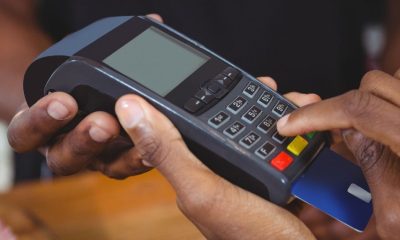
 Business2 days ago
Business2 days agoFive levies Nigerians pay for electronic transactions
-
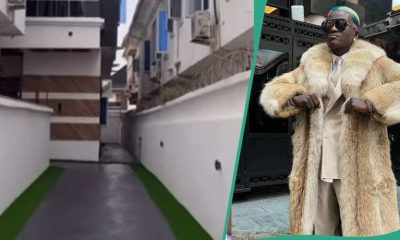
 Entertainment2 days ago
Entertainment2 days agoPortable acquires luxury house in Lekki (Video)



